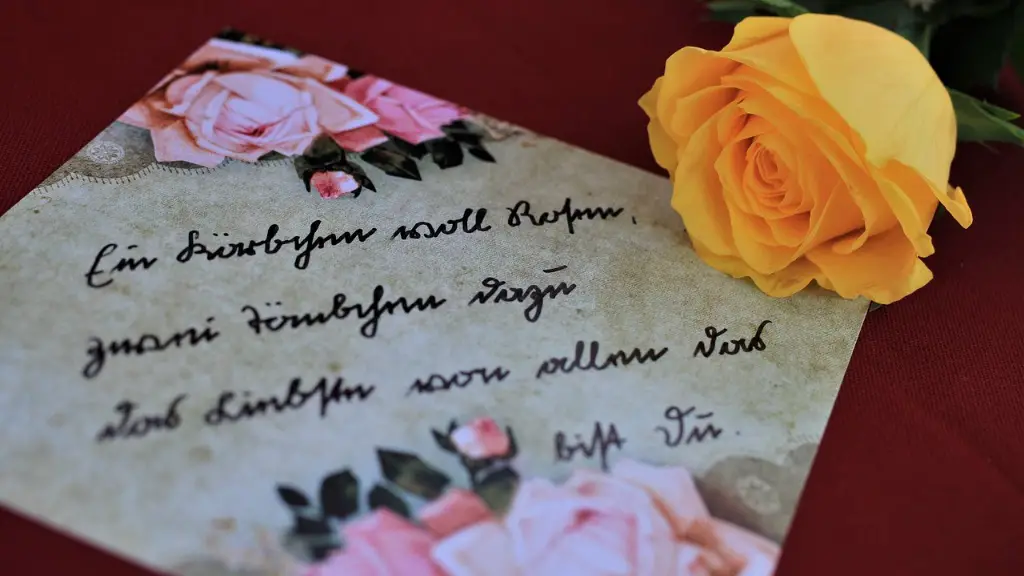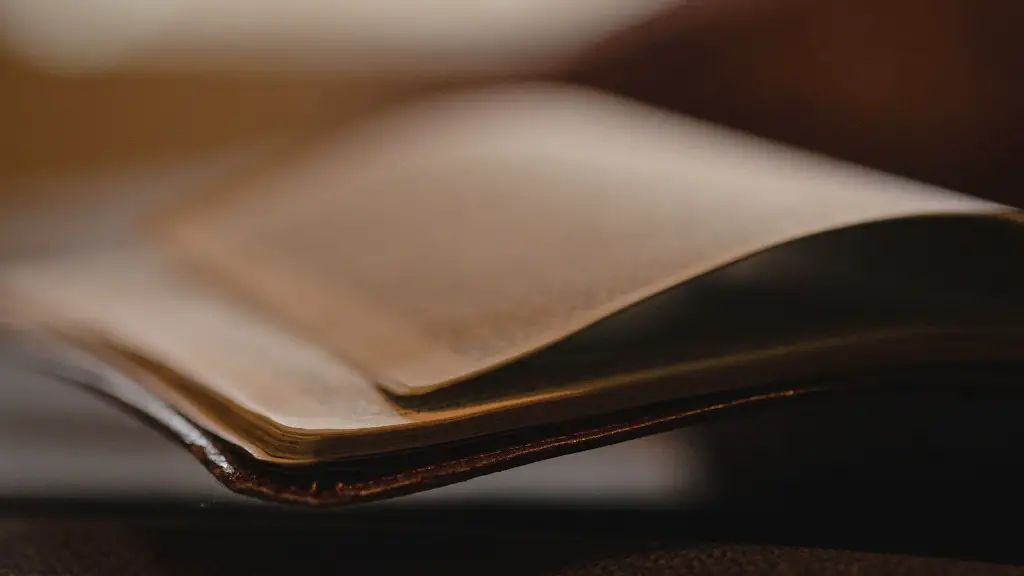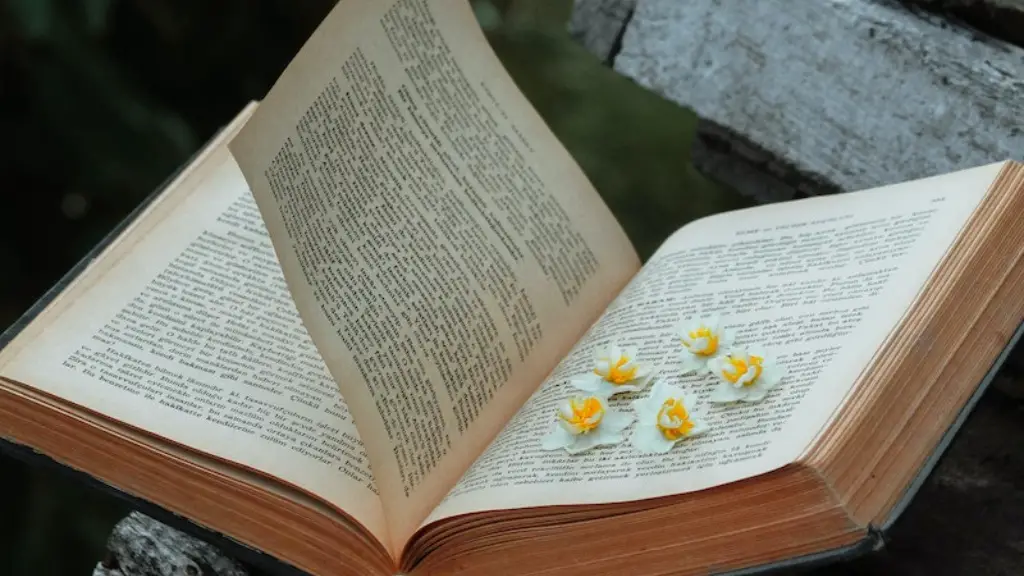What is Caribbean Poetry
Caribbean poetry is a genre of literature that originated from the various countries of the Caribbean region. It is often characterized by vivid imagery, strong emotions, and complex wordplay. Caribbean poetry has a long and varied history, stretching back to the time of colonial rule and even reaching as far back as the indigenous peoples of the region.
Themes of Caribbean poetry are often centered on the experiences of its people. Many poems explore topics such as the struggle to find identity in the face of colonization, cultural suppression, and displacement. Poets often draw on their own past experiences, as well as their cultures, to explore and express the joy, pain, and emotions of their heritage.
From the late 19th century, the poetic movement in the Caribbean has exploded and blossomed. Writers such as Louise Bennett, Aimé Césaire, Derek Walcott, and Kamau Brathwaite are a few examples of highly acclaimed Caribbean poets. Bennett is notably known as the first Jamaican poet to write in Jamaican Patois, while Césaire and Walcott are renowned French and English-language poets respectively.
Caribbean poetry has been an impetus of empowerment and freedom for the Caribbean people. Poets have tackled themes of oppression, poverty, migration, and race in their works, creating meaningful social commentaries that still resonate today. By analyzing Caribbean poetry in the historical context and how it speaks to modern issues, we can uncover the power of its messages. Now more than ever, Caribbean poetry provides an avenue to explore political, economic, and religious aspects of the region.
Caribbean poets are often experimental in their approach to poetic forms. Caribbean poets often use jazz-like rhythms and beats as a tool for storytelling and as a response to traditional styles of poetry, which can be seen in works such as Brathwaite’s “Rights of Passage” and Césaire’s “A Tempest.” As decades have passed, poets have created their own poetic style, like Walcott’s combination of European and Caribbean aesthetics called “Kumina.”
Caribbean poetry has inspired generations of people, who look to it for guidance, inspiration, and creativity. Poets have used Caribbean poetry to explore serious issues and to find solace in moments of pain and suffering. This form of poetry has been a tool to express the beauty, sadness, and hope of a region that has been both shaped and shaken by its history.
How Does Caribbean Poetry Impact Society?
Caribbean poetry has had a lasting impact on many aspects of Caribbean society, from cultural identity and language to political and social movements. The power of the poetry can be seen in the music, dance, and art that originate from the region, which often take direct inspiration from the language and imagery of the poems.
The works of Caribbean poets also helped to catalyze anti-colonial and independence movements in many Caribbean countries. Aimé Césaire and Jean Paul Sartre’s works profoundly influenced the decolonization process in the Caribbean, while Derek Walcott’s Pulitzer Prize-winning poem, “Omeros”, draws on his experience of being both a colonial subject and a British-educated Trinidadian.
Most notably, Caribbean poetry has helped to raise awareness about the diversity and richness of the region, giving a voice to its people and inspiring them to take pride in their identities and cultures. Though they often tackle difficult topics, Caribbean poets also emphasize hope, capturing the beauty of Caribbean life and creating a positive outlook for the future.
What’s the Future of Caribbean Poetry?
Caribbean poetry continues to evolve alongside the region, responding to its changing political, societies, and cultural landscapes. While anticolonial and independence movements are still important topics for many Caribbean poets, the growing acceptance of multiculturalism and diversity in the region offers new opportunities for creative expression.
The internet has allowed Caribbean poets to reach a larger audience than ever before, leading to increased international recognition for the genre. Online platforms such as YouTube, Instagram, and Twitter have opened up new avenues for poets to distribute and share their work, while new movements such as spoken word poetry have expanded the reach of the genre.
The future of Caribbean poetry looks bright, as poets continue to explore new topics, forms, and language combinations. Caribbean poets today are better able to access global markets and have more tools at their disposal than ever before, making it possible for even more diverse voices to be heard.
What are the Literary Aspects of Caribbean Poetry?
Caribbean poets often draw on their unique cultural backgrounds and stories, combining aspects of more traditional poetry with oral narratives, to create a vibrant and captivating blend of styles. For example, language is often shifted between English, French, Spanish, and various Caribbean creoles and Jamaican Patois. Poets often draw from history and mythology, religious traditions and folklore, and their own life experiences.
Themes of Caribbean poetry range from joy and celebration to pain and suffering, from the beauty and wonder of nature to the realities of oppressive colonial rule and racism. Caribbean poets often use vivid imagery to paint a picture of their world, creating an emotional and captivating experience for the reader.
The use of metaphor and similes is also common in Caribbean poetry, allowing poets to draw comparisons between topics and ideas. Abstract concepts such as love, freedom, and justice are explored in new ways and often compared to more concrete objects – like rivers or birds – to better evoke an emotional response from the reader.
What is the Reception to Caribbean Poetry?
Caribbean poetry has received both acclaim and criticism from a range of sources. While some have praised the genre for its ability to express the culture and experiences of the Caribbean, others have criticized it for being too heavily influenced by European aesthetics and forms of expression. Similarly, some have praised the genre for its vivid imagery while others have criticized it for being too rambling and abstract.
Overall, Caribbean poetry has been embraced by many within and outside the region, as a form of expression and a means of exploring the nuanced aspects of Caribbean life. Many Caribbean poets – such as Walcott, Césaire, and Brathwaite – have been recognized with prestigious awards and honors, and the works of Caribbean poets continue to be studied and highlighted in modern times.
What is the Connection between Caribbean Poetry and Social Change?
The works of Caribbean poets have often reflected the region’s struggles and successes, and their words have been used to spur people to action. Through their words, Caribbean poets have provided an outlet to express feelings and ideas that could not find a platform elsewhere. Poets such as Césaire and Walcott were active activists in their respective countries, often using their artistic expression to advocate for the political and social causes they felt passionately about.
Caribbean poetry has been a voice of hope, resistance, and freedom. It has provided a platform to channel the pain and suffering of its people, while also celebrating their joys and triumphs. As Caribbean poets continue to create beautiful and thought-provoking works, they will continue to inspire others to fight for justice and strive for a better future.
What is the Legacy of Caribbean Poetry?
The legacy of Caribbean poetry is closely tied to the region’s long struggle of colonisation, oppression, and resilience. Poets such as Césaire and Walcott, Bennett and Brathwaite are widely celebrated figures, whose works have served to capture the voice of the region and express its beauty and struggles.
The works of Caribbean poets have inspired generations, challenging people to think differently about their identities, cultures, and histories. Caribbean poets today continue to draw from their rich literary heritage to create meaningful works that echo and engage with their surroundings.
The diverse voices of Caribbean poets continue to shape the culture and landscape of the region, bringing about understanding and progress in difficult times. As Caribbean poets continue to create, their works will undoubtedly leave a powerful and lasting legacy.





